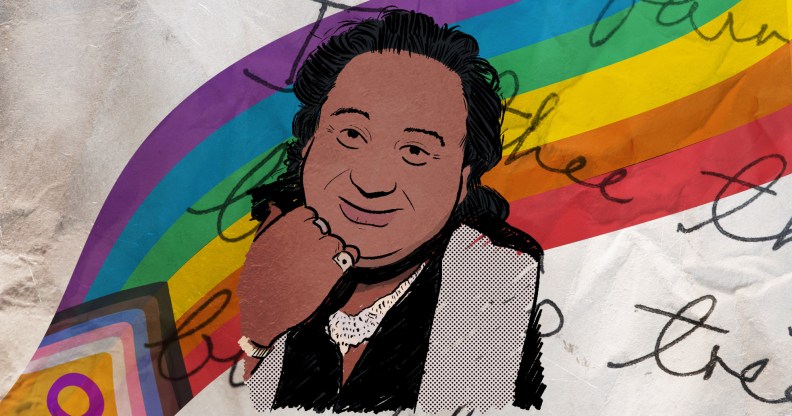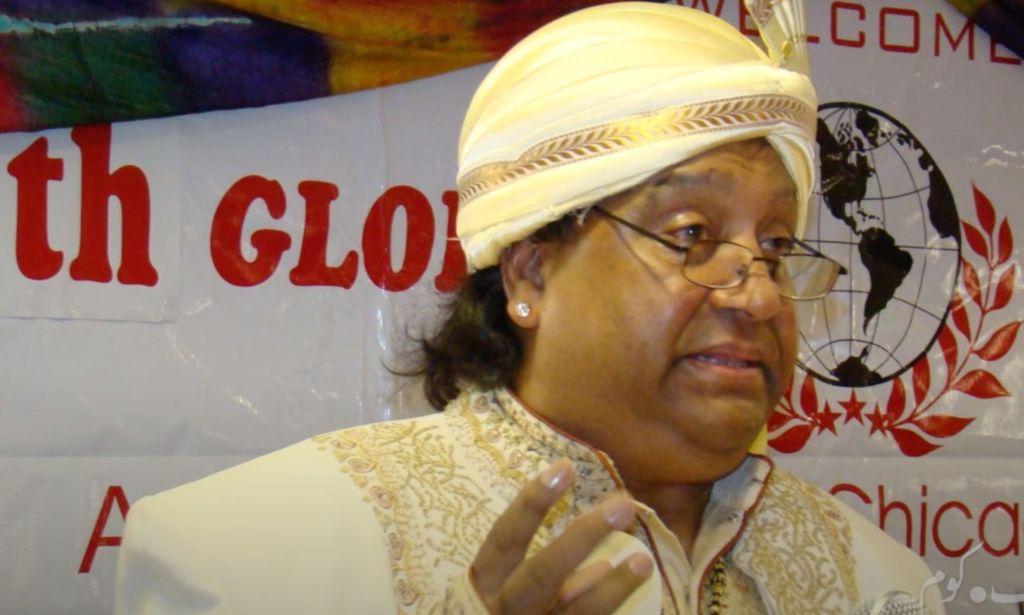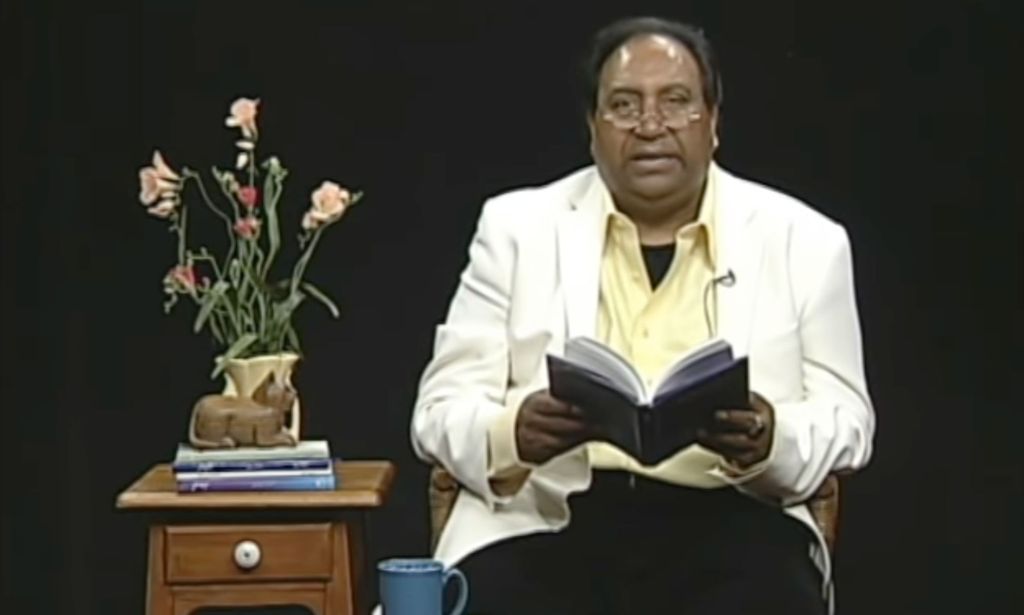Ifti Nasim: Meet the fearless gay Pakistani poet who survived a gunshot and made LGBTQ+ history

Ifti Nasim dedicated his life and poetry to advocating for LGBTQ+ people facing persecution. (Pink News)
Poetry can capture the fear and joy that comes with being part of the LGBTQ+ community – gay Pakistani-American, Ifti Nasim, used his to reach out to others facing persecution.
Nasim was a trailblazer for queer Pakistani people, and he’s thought to be the first openly gay poet from the South Asian country. He dedicated his life and art to fighting for LGBTQ+ rights and to increasing acceptance within the Muslim community.
Nasim was born in what is now known as Faisalabad, the third largest city in Pakistan, on 15 September, 1946 – almost a year before the country achieved independence.
He grew up in a large, traditional Islamic family and faced bullying and isolation throughout his younger years. He felt ostracised, and knew he’d never be able to live as an openly gay man.
In Pakistan, LGBTQ+ people faced – and still face – stigmatisation. Sex between men is criminalised – a law first put in place under British rule – and the maximum penalty is life imprisonment. The country, which has a conservative Muslim majority, has entrenched beliefs on sexual orientation and gender identity. LGBTQ+ people experience varying degrees of tolerance because of cultural traditions.
Throughout his life, Nasim fought back against oppression. Aged 16, he was reading a politically charged poem of his at a protest against martial law when a soldier shot him in the leg.

Nasim wrapped up the wound and eventually made it home, telling no one of the incident. His injury was eventually discovered, and he was bedridden for months which ruined his potentially promising career in classical Kathak dance.
In his early 20s, Nasim fled Pakistan to escape persecution, and he eventually moved to the USA after he read a magazine article touting America’s acceptance of LGBTQ+ people.
He recalled reading about a “thing called gay movement” and how queer people were “living happily ever after” in the US, according to a recording of the late poet archived by the SAAD (the South Asian American Digital Archive).
“And in Pakistan, to be gay, openly gay, means to be to be tapped by either by bullet or they will cut your… resources,” he said.
“The family will not talk to you. So it means … you were forced to live in a closet, and [the] whole [of] Pakistan is a big closet where everybody’s living.”
As Nasim eventually found out, the movement he read about was that fuelled by the 1969 Stonewall riots, the flashpoint moment in history for the modern LGBTQ+ rights fight.
He came alone and studied at university, where he continued his poetry before he eventually helped his siblings emigrate to the US.
Nasim spent most of his later life in Chicago, Illinois. The Midwestern city not only became his home, but it also became a place where he could explore his identity.
He said he was, at first, “afraid to go into a gay bar”, but he soon discovered they were filled with the “nicest people on the planet earth”. Nasim said being part of the gay community gave him a confidence he’d never before experienced.
Nasim helped found Sangat in 1986, one of the earliest South Asian LGBTQ+ organisations in the US. The group provided support for queer South Asians in the area and allowed Nasim to give back to Chicago’s LGBTQ+ community, which gave so much to him.
Even with a growing career and tireless advocacy, Nasim devoted much of his time to writing. He released multiple books of poems – written in Urdu, Punjabi and English – that touched on the persecution of LGBTQ+ people and lives of queer people in Muslim countries.
He became best known for his award-winning book of Urdu poetry entitled Narman, a word meaning “hermaphrodite” or “half-man, half-woman” in Persian.

The poetry collection is said to be the first open expression of gay desire and themes in the Urdu language. Its publication was met with controversy but critical acclaim and inspired other Pakistani poets.
Nasim tackled issues regarding Islam’s tolerance of LGBTQ+ people. He submitted that God “wouldn’t have created me if he didn’t want me to lead a happy and fulfilled life. God doesn’t create trash”.
For his impactful work, Nasim was inducted into the Chicago LGBT Hall Of Fame in 1996.
In his third and final book, Abdoz, Nasim continued to discuss LGBTQ+ topics. His 2005 poetry collection contained these lines: “I feel my life was spent in a submarine/The journey has ended; I saw nothing.”
Following a heart attack on 22 July 2011, Ifti Nasim passed away in a Chicago hospital at the age of 64. Advocates remembered Nasim as a bright light in the enduring struggle for LGBTQ+ rights in the US.
One advocate described Nasim as a “pioneer in the South Asian and the Muslim community” while another recalled how he was a “landing pad for many LGBT immigrants”.

